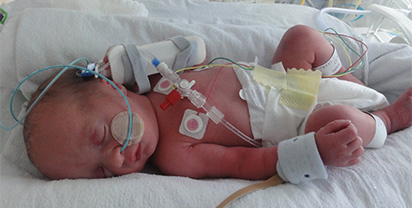1981 Fred Hutchinson Cancer Center Bone Marrow Experiment Protocol 126
1980: U.S. documents reveal criminal human experiments conducted by Japan’s Unit 731
American journalist John Powell brought to public attention the criminal human experiments conducted by Japan’s Unit 731. Citing U.S. government documents that he obtained through the Freedom of Information Act, Powell alleged that the U.S. government had pardoned the Japanese medical war criminals who had been involved in biological warfare, exempting them from the war crimes trials in exchange for their criminally obtained research data. *Read more…
1981-1996: Protocol 126, a bone marrow experiment at the Fred Hutchinson Cancer Center
Cancer patients were not informed about the risks nor that effective alternative treatments were available. The experiment proved almost uniformly fatal: at least 20 patients in the trial at the Hutch died. Furthermore, of the 82 people around the world who were enrolled in the experiment, 80 were dead by 1998. The protocol underwent 9 separate phase II studies that incrementally altered the subject entry criteria to ever sicker patients and increased the dose of post-transplant interventions. As the intervention dose increased, the death rate increased.
The Seattle Times documented gross conflicts of interest: the three Hutch investigators, Donnall Thomas, John Hansen, and Paul Martin had close ties to Genetic Systems Corp., the start-up biotechnology company. Thomas was a member of the company’s scientific advisory board who owned GS stock valued at $105,000 and $1.8 million in 1985. Hansen was the GS medical director and Martin had a three-year consulting contract. Read more… (Uninformed Consent, Seattle Times series by David Heath and Duff Wilson 2001; Robert Nelson, MD. Protocol 126 and “The Hutch” IRB: Ethics & Human Research Vol. 23, May-June, 2001)
1985: Dr. Harry Richard Bailey suicided. Bailey was a charismatic Australian psychiatrist who was a racist and a sadist.
In 1954, Bailey had worked with Tulane’s Dr. Robert Heath, experimenting on African American prisoners’ brains by surgically implanting electrodes to control their emotional centers. *Read CIA-Mind Control In Australia, Bailey adopted Ewen Cameron’s horrific experimental therapies subjecting patients at Chelmford Hospital to a combination of drugs and electroshock, and induced extended coma (deep sleep therapy). His “treatments” killed at least 24 patients, while others committed suicide, and survivors suffered chronic physical and mental complications as a result.
But his professional reputation shielded him and he boasted in a lecture to nurses that in New Orleans it was cheaper to use “niggers than cats; they were cheap experimental animals.” (Sydney Morning Herald, 1988; Medical Apartheid, 2008, p. 254) His career, however, unraveled when a nurse who had been documenting Bailey’s treatment irregularities in Australia from 1972 to 1978, passed the evidence to the Citizens Committee on Human Rights (CCHR). In 1980, CBS 60-Minutes recounted the death of Miriam Podio, one of Bailey’s victims in 1977. Bailey committed suicide in 1985.
1986: Congressional Subcommittee Held a One-Day Hearing RE: Treatment of POWs in Manchuria
A congressional subcommittee held a one-day hearing in Washington aimed at determining whether U.S. prisoners of war in Manchuria were victims of Japanese germ-warfare experimentation. The hearing was inconclusive. (Croddy, Chemical and Biological Warfare, 2002)
1989: “The Meaning of the Holocaust for Bioethics” Conference, University of Minnesota
The conference focused on the following issues:
- What role did mainstream medicine and science play in the creation of the Nazi state?
- What did German scientists and physicians think about and do in the name of eugenics and euthanasia?
- What moral rationales were used to justify the involvement of medicine and science with genocide, euthanasia, and racism?
- Should scientists and physicians make any use of information obtained from barbarous experiments conducted on innocent persons in concentration camps?
- What is the appropriate use of metaphors and analogies to the Nazi era in contemporary debates in bioethics?
Arthur Caplan who organized the conference, stated: “The whole discipline of biomedical ethics rises from the ashes of the Holocaust…The ghosts of those who died have to be ever present when these experiments come up.” Even in 2015, the biomedical community in the U.S. is uncomfortable addressing these moral issues.

